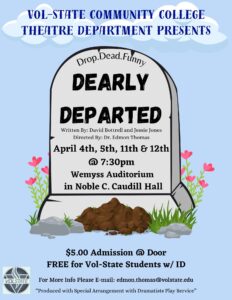Last updated on May 2, 2019
By Yvonne Nachtigal
Having advanced our clocks an hour on Sunday, most of us are a bit groggier and crankier than normal this week. The question arises, “why on earth do we do this?”
Benjamin Franklin is popularly credited with daylight saving time (DST), but that is a myth. What Franklin did was note that Parisians, who, he maintained, wasted half their day sleeping, would save money on candles and better utilize daylight by going “early to bed and early to rise.”
Our elementary school teachers told us that the idea of “maximizing daylight” was to help farmers and lower the nation’s electricity usage. But, historically, farmers and the agricultural industry have been the only ones who have lobbied against the plan because it left them with less sunlight to get their crops to market.
As one farmer noted, “After all, dew doesn’t evaporate at a specific time, cows typically aren’t too keen on an earlier milking, workers worked less since they came and went according to the clock, and those darn roosters sure can’t tell time.”
The farmers’ lobbying led to a repeal of DST in 1919, much to the dismay of retail and recreational businesses that benefited from the time change, because with later daylight people shopped more and engaged in more after-work activities.
But let’s step back and look at a brief history of DST.
In Europe, after World War I, Parliament passed acts concerning what they called “summer time,” although Germany had already been practicing DST since 1916. The U.S. first adopted the practice in 1918, but it is the Canadians who win the award as being the first to implement the sleep-wrecking practice in 1908.
In 1942, President Roosevelt creating a year-round “war time” as a purported means to conserve energy resources. War time lasted from Feb. 9, 1942, to Sept 30, 1945. After it ended there was a lot of confusion about time, with some cities and states following DST and others not.
In 1966, the United States passed the Uniform Time Act, bringing back much needed order to the country’s clocks. Hawaii and Arizona opted out in 1967 and 1968 respectively.
In 2007, the starting date of DST was changed from the last Sunday in April to the second Sunday in March. The thought was that another month of DST would save more energy. But significant energy savings remain to be proven.
The California Energy Commission did a study on the impact of the one-month extension and estimated the minuscule savings to be at 0.18%.
In 2008, a team from Yale studied the impact of DST on residents of Indiana. Their findings, reported in National Geographic, stated that the lighting demand had dropped, but that the hour of extra daylight tacked onto each evening led to increased air-conditioning use, cancelling out the gains from reduced lighting “and then some.”
What we were told in elementary school appears to be pure hype. DST is problematic for farmers and does not appear to have any energy saving benefits. Additionally, research shows that DST and the shifting and rupturing of sleep patterns is linked to heart attacks and car accidents. Decreased productivity and workplace accidents have been reported and accidents involving children going to school in the dark, early hours have raised concerns.
A 2011 Rasmussen poll revealed that 47% of Americans said DST was not worth the hassle.
In our own Man On The Street poll this week, lack of sleep was the one complaint about DST, and general confusion about what time it is where, was the main reason students thought Tennessee should not to opt out. While some are more affected by the shifting of the clocks than others, “Gosh, I just love getting up an hour earlier” was not among the responses.
If farmers are not helped and we are not saving energy, why do we put ourselves through this twice a year? The only ones benefiting from all the fuss appear to be for recreational businesses and retail.




Comments are closed.